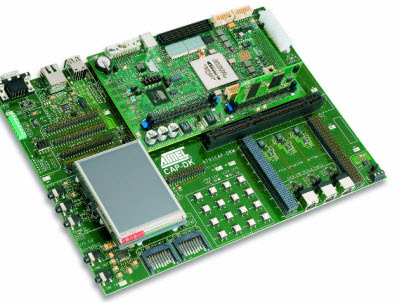 FXI Technologies and Atmel are announcing today they are putting games on the flash memory cards that can be plugged into cell phones. They call it the world’s first MicroSD Gaming Console for mobile phones, although that’s a bit of an exaggeration.
FXI Technologies and Atmel are announcing today they are putting games on the flash memory cards that can be plugged into cell phones. They call it the world’s first MicroSD Gaming Console for mobile phones, although that’s a bit of an exaggeration.
First, Nokia’s own N-Gage games were stored on flash memory cards, and they met with a poor fate. Second, it’s hard to call something like this a “game console.” The graphics and game play speed will to some degree depend on the limited horsepower and displays of mobile phones.
Still, it’s an interesting feat. The Nokia design was different in that the N-Gage games were stored on a card and the processing was done with the phone’s hardware. By contrast, Norway’s FXI has been able to put everything you need to play a game on a chip using Atmel’s 90-nanometer SiliconCity Flexible design tools. Atmel designed its memory chips so that virtually anything could be built on top of them. The FXI design integrates a 3-D graphics component, an ARM9 processor, and other components that can be fused into Atmel’s flash memory chip. The companies say the net result is great game performance on a mobile phone that otherwise would be a poor game device.
The MicroSD cards can be inserted into any phone with a slot that fits them. There are expected to be about 500 million phones with MicroSD-enabled card slots by mid-2010, according to IMS Research. The FXI device actually doesn’t care what kind of processor the mobile phone has. In that sense, the FXI chip can vastly improve the processing performance of the mobile phone being used, said Isaac van Kempen, chief executive of FXI.
“It will vastly upgrade cell phone performance, while providing consumers a console-class gaming experience,” he said.
FXI is distributing its prototype board designs (pictured) to game publishers and developers so they can create games to run on the MicroSD card chips. FXI says that developing the game console on Atmel’s pre-designed memory chips saves a lot of time and engineering costs. Designs can be transferred onto working chips in a very short amount of time. FXI’s first product will be available in 2010.


